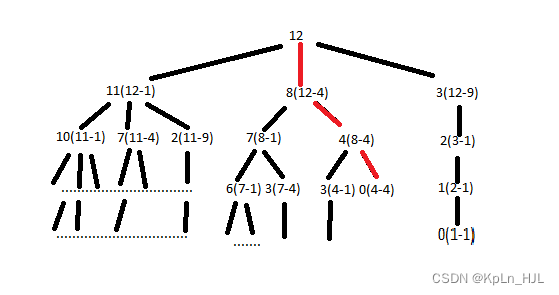- x86-64汇编语言训练程序与实战
十除以十等于一
本文还有配套的精品资源,点击获取简介:汇编语言是一种低级语言,与机器代码紧密相关,特别适用于编写系统级代码及性能要求高的应用。nasm编译器是针对x86和x86-64架构的汇编语言编译器,支持多种语法风格和指令集。项目Euler提供数学和计算机科学问题,鼓励编程技巧应用,前100个问题的答案可共享。x86-64架构扩展了寄存器数量并引入新指令,提升了数据处理效率。学习汇编语言能够深入理解计算机底层
- 三菱PLC全套学习资料及应用手册
good2know
本文还有配套的精品资源,点击获取简介:三菱PLC作为工业自动化领域的核心设备,其系列产品的学习和应用需要全面深入的知识。本次资料包为学习者提供从基础到进阶的全方位学习资源,包括各种型号PLC的操作手册、编程指南、软件操作教程以及实际案例分析,旨在帮助用户系统掌握PLC的编程语言、指令系统及在各类工业应用中的实施。1.三菱PLC基础知识入门1.1PLC的基本概念可编程逻辑控制器(PLC)是工业自动化
- 2022-10-20
体力劳动者
不因感觉稍纵即逝就不加记录。在女儿睡觉后我记下今天的小故事。接手新班级后,今天是第二次收到家长的感谢信(微信)。是我表扬次数最多的两位学生家长致来的感谢,他们明显感受到孩子自信、阳光了不少,写作业由被动变为了主动,家庭氛围也由鸡飞狗跳变成了其乐融融。在被顽皮的学生气得头晕之后,我感到了久违的价值感,责任感甚至使命感,我回复家长这样一句话:我们也需要家长的反馈好让我们的教育工作更有劲头。我也认识到,
- 移动端城市区县二级联动选择功能实现包
good2know
本文还有配套的精品资源,点击获取简介:本项目是一套为移动端设计的jQuery实现方案,用于简化用户在选择城市和区县时的流程。它包括所有必需文件:HTML、JavaScript、CSS及图片资源。通过动态更新下拉菜单选项,实现城市到区县的联动效果,支持数据异步加载。开发者可以轻松集成此功能到移动网站或应用,并可基于需求进行扩展和优化。1.jQuery移动端解决方案概述jQuery技术简介jQuery
- 15个小技巧,让我的Windows电脑更好用了!
曹元_
01.桌面及文档处理第一部分的技巧,主要是围绕桌面的一些基本操作,包括主题设置、常用文档文件快捷打开的多种方式等等。主题换色默认情况下,我们的Win界面可能就是白色的文档界面,天蓝色的图表背景,说不出哪里不好看,但是就是觉得不够高级。imageimage说到高级感,本能第一反应就会和暗色模式联想起来,如果我们将整个界面换成黑夜模式的话,它会是这样的。imageimage更改主题颜色及暗色模式,我们
- (二)SAP Group Reporting (GR) 核心子模块功能及数据流向架构解析
数据如何从子公司流转到合并报表的全过程,即数据采集→合并引擎→报表输出,特别是HANA内存计算如何优化传统ETL瓶颈。SAPGroupReporting(GR)核心模块功能及数据流向的架构解析,涵盖核心组件、数据处理流程和关键集成点,适用于S/4HANA1809+版本:一、核心功能模块概览模块功能关键事务码/FioriApp数据采集(DataCollection)整合子公司财务数据(SAP/非SA
- 9、汇编语言编程入门:从环境搭建到简单程序实现
神经网络酱
汇编语言MEPISGNU工具链
汇编语言编程入门:从环境搭建到简单程序实现1.数据存储介质问题解决在处理数据存储时,若要使用MEPIS系统,需确保有其可访问的存储介质。目前,MEPIS无法向采用NTFS格式(常用于Windows2000和XP工作站)的硬盘写入数据。不过,若硬盘采用FAT32格式,MEPIS就能进行写入操作。此外,MEPIS还能将文件写入软盘和大多数USB闪存驱动器。若工作站连接到局域网,还可通过FTP协议或挂载
- 月光下的罪恶(5)
允歌玖沐
5.被孤立顾纨是转校过来的,进入学校后,回头率很高“诶诶诶,你看那女生,哪个系的?”“不知道没见过。”“看那样,一看就是个胆小的货。”顾纨当做没听到,更狠的话她都听过,更何况女生们耍心眼?“他爸爸是做黑生意的,估计女儿也不是什么好的,你以后离他一家子远点。”她走向自己要上课的教室,一进门,所有人的目光看向她,顾纨若无其事的走进教室,开始上课。下课,一群人站起来,但是很显然,她周围的一圈人都不愿意和
- day15|前端框架学习和算法
universe_01
前端算法笔记
T22括号生成先把所有情况都画出来,然后(在满足什么情况下)把不符合条件的删除。T78子集要画树状图,把思路清晰。可以用暴力法、回溯法和DFS做这个题DFS深度搜索:每个边都走完,再回溯应用:二叉树搜索,图搜索回溯算法=DFS+剪枝T200岛屿数量(非常经典BFS宽度把树状转化成队列形式,lambda匿名函数“一次性的小函数,没有名字”setup语法糖:让代码更简洁好写的语法ref创建:基本类型的
- 贝多芬诞辰250周年纪念
万千星河赴远方
就算不是古典音乐爱好者,你也一定听说过贝多芬。作为古典音乐史上最伟大的音乐家之一,他不仅是古典主义风格的集大成者,同时也是浪漫主义风格的开创者。贝多芬肖像画(1813年)贝多芬的一生共创作了9部交响曲、36首钢琴奏鸣曲、10部小提琴奏鸣曲、16首弦乐四重奏、1部歌剧及2部弥撒曲等等。数量虽然不及前辈海顿、莫扎特多,但他几乎改造了当时所有的音乐表达形式,赋予了它们全新的价值,对后世音乐的发展产生了极
- 三件事—小白猫·雨天·八段锦
咸鱼月亮
1.最近楼下出现一只非常漂亮的粘人小白猫,看着不像是流浪猫,非常亲人。眼睛比蓝球的还大,而且是绿色的,很漂亮。第一次遇到它,它就跟我到电梯口,如果我稍微招招手,肯定就跟我进电梯了。后来我喂过它几次,好可惜不能养它,一只蓝球就是我的极限了。2.下雨天就心烦,好奇怪。明明以前我超爱看窗外的雨和听雨声,看来近来的心情不够宁静了。3.最近在练八段锦,从第一次就爱上了这个运动,很轻松缓慢,但是却出汗。感觉可
- 我不懂什么是爱,但我给你全部我拥有的
香尧
因为怕黑,所以愿意陪伴在夜中行走的人,给他一点点的安全感。因为渴望温柔与爱,所以愿意为别的孩子付出爱与温柔。因为曾遭受侮辱和伤害,所以不以同样的方式施于其他人。如果你向别人出之以利刃,对方还了你爱与包容,真的不要感激他,真的不要赞美他。每一个被人伤害过的人心里都留下了一颗仇恨的种子,他也会想要有一天以眼还眼,以牙还牙。但他未让那颗种子生根发芽,他用一把心剑又一次刺向他自己,用他血荐仇恨,开出一朵温
- C++ 计数排序、归并排序、快速排序
每天搬一点点砖
c++数据结构算法
计数排序:是一种基于哈希的排序算法。他的基本思想是通过统计每个元素的出现次数,然后根据统计结果将元素依次放入排序后的序列中。这种排序算法适用于范围较小的情况,例如整数范围在0到k之间计数排序步骤:1初始化一个长度为最大元素值加1的计数数组,所有元素初始化为02遍历原始数组,将每个元素值作为索引,在计数数组中对应位置加13将数组清空4遍历计数器数组,按照数组中的元素个数放回到元数组中计数排序的优点和
- 2023-11-02
一帆f
发现浸润心田的感觉:今天一个机缘之下突然想分享我的婆媳关系,我一边分享一边回忆我之前和儿媳妇关系的微妙变化,特别是分享到我能感受到儿媳妇的各种美好,现在也能心平气和的和老公平等对话,看到自己看到老公,以己推人以人推己自然而然的换位思考,心中有一种美好的能量在涌动,一种浸润心田的感觉从心胸向全身扩散,美好极了……我很想记住这种感觉,赶紧把它写下来以留纪念,也就是当我看见他人的美好,美好的美妙的浸润心
- 贫穷家庭的孩子考上985以后会怎样?
Mellisa蜜思言
我出生在一个贫穷的农村家庭,据我妈说,我出生的时候才4斤多,而她生完我以后月子里就瘦到70斤。家里一直很穷,父母都是在菜市场卖菜的,家里还有几亩地种庄稼的。我很小开始就要去帮忙,暑假的生活就是帮忙去卖菜和割稻谷,那时候自己对于割稻谷这种事情有着莫名的恐惧,生怕自己长大以后还是每年都要过着割稻谷这种日子。父母因为忙于生计无暇顾及我的学习,幸好我因为看到他们这样子的生活,内心里有深深的恐惧感,驱使着我
- 实时数据流计算引擎Flink和Spark剖析
程小舰
flinkspark数据库kafkahadoop
在过去几年,业界的主流流计算引擎大多采用SparkStreaming,随着近两年Flink的快速发展,Flink的使用也越来越广泛。与此同时,Spark针对SparkStreaming的不足,也继而推出了新的流计算组件。本文旨在深入分析不同的流计算引擎的内在机制和功能特点,为流处理场景的选型提供参考。(DLab数据实验室w.x.公众号出品)一.SparkStreamingSparkStreamin
- 48. 旋转图像 - 力扣(LeetCode)
Fiee-77
#数组leetcode算法python数据结构数组
题目:给定一个n×n的二维矩阵matrix表示一个图像。请你将图像顺时针旋转90度。你必须在原地旋转图像,这意味着你需要直接修改输入的二维矩阵。请不要使用另一个矩阵来旋转图像。示例1:输入:matrix=[[1,2,3],[4,5,6],[7,8,9]]输出:[[7,4,1],[8,5,2],[9,6,3]]示例2:输入:matrix=[[5,1,9,11],[2,4,8,10],[13,3,6,
- 日更50天有什么收益?
星湾二宝
坚持在平台上日更50天了,平台也为我生成了日更50天徽章,小开心一下这份坚持。日更50天徽章那坚持50天都有哪些收益呢?收益一,就是最直观的那些钻和贝,我这边确实不太高,但是这些贝足够支撑我保持会员的资格,能够在发文的时候帮助友友们去除广告,方便阅读。钻和贝收益二,文章的收获,日更50天,坚持写作3.7万文字,书写的文字也从开始的流水账/碎碎念逐渐加入自己的思考和观点。以前,一个念头会一晃而过,如
- Git 与 GitHub 的对比与使用指南
一念&
其它gitgithub
Git与GitHub的对比与使用指南在软件开发中,Git和GitHub是两个密切相关但本质不同的工具。下面我将逐步解释它们的定义、区别、核心概念以及如何协同使用,确保内容真实可靠,基于广泛的技术实践。1.什么是Git?Git是一个分布式版本控制系统,由LinusTorvalds于2005年创建。它的核心功能是跟踪代码文件的变化,帮助开发者管理项目历史记录、协作和回滚错误。Git是开源的,可以在本地
- 深入解析JVM工作原理:从字节码到机器指令的全过程
一、JVM概述Java虚拟机(JVM)是Java平台的核心组件,它实现了Java"一次编写,到处运行"的理念。JVM是一个抽象的计算机器,它有自己的指令集和运行时内存管理机制。JVM的主要职责:加载:读取.class文件并验证其正确性存储:管理内存分配和垃圾回收执行:解释或编译字节码为机器指令安全:提供沙箱环境限制恶意代码二、JVM架构详解JVM由三个主要子系统组成:1.类加载子系统类加载过程分为
- Spring进阶 - SpringMVC实现原理之DispatcherServlet处理请求的过程
倾听铃的声
后端springjavamvc开发语言分布式
前文我们有了IOC的源码基础以及SpringMVC的基础,我们便可以进一步深入理解SpringMVC主要实现原理,包含DispatcherServlet的初始化过程和DispatcherServlet处理请求的过程的源码解析。本文是第二篇:DispatcherServlet处理请求的过程的源码解析。@pdaiSpring进阶-SpringMVC实现原理之DispatcherServlet处理请求的
- ARM 和 AMD 架构的区别
m0_69576880
arm开发windows架构
ARM架构和AMD架构是两种不同的计算机处理器架构,它们有以下几个主要区别:设计出发点、兼容性、性能特点、市场定价。设计出发点:①ARM构架:ARM架构最初是为嵌入式系统设计的,旨在提供低功耗和高效能的解决方案。它主要应用于移动设备、嵌入式系统和物联网设备②AMD架构:AMD架构是基于x86架构的扩展,旨在提供与Intel架构兼容的处理器。它主要用于台式机、服务器和工作站等计算机系统。兼容性:AR
- 【C++算法】76.优先级队列_前 K 个高频单词
流星白龙
优选算法C++c++算法开发语言
文章目录题目链接:题目描述:解法C++算法代码:题目链接:692.前K个高频单词题目描述:解法利用堆来解决TopK问题预处理一下原始的字符串数组,用一个哈希表统计一下每一个单词出现的频次。创建一个大小为k的堆频次:小根堆字典序(频次相同的时候):大根堆循环让元素依次进堆判断提取结果C++算法代码:classSolution{//定义类型别名,PSI表示对typedefpairPSI;//自定义比较
- 关于流媒体播放器EasyPlayer和EasyPlayerPro的介绍以及其区别
EasyDarwin
EasyDarwin音视频ffmpeg人工智能大数据ar
EasyPlayer是一款流媒体播放器系列项目,它支持多种流媒体协议的播放,包括但不限于RTSP、RTMP、HTTP、HLS、UDP、RTP、File等。除此之外,EasyPlayer还支持本地文件播放和多种功能特性,包括本地抓拍、本地录像、播放旋转、多屏播放、倍数播放等。EasyPlayer核心基于ffmpeg,稳定、高效、可靠、可控。随着多年的不断发展和迭代,EasyPlayer基于成功的实践
- JVM 内存模型深度解析:原子性、可见性与有序性的实现
练习时长两年半的程序员小胡
JVM深度剖析:从面试考点到生产实践jvmjava内存模型
在了解了JVM的基础架构和类加载机制后,我们需要进一步探索Java程序在多线程环境下的内存交互规则。JVM内存模型(JavaMemoryModel,JMM)定义了线程和主内存之间的抽象关系,它通过规范共享变量的访问方式,解决了多线程并发时的数据一致性问题。本文将从内存模型的核心目标出发,详解原子性、可见性、有序性的实现机制,以及volatile、synchronized等关键字在其中的作用。一、J
- Flowable 实战落地核心:选型决策与坑点破解
练习时长两年半的程序员小胡
Flowable流程引擎实战指南低代码BPMN流程引擎flowable后端java
在企业级流程引擎的落地过程中,选型的准确性和坑点的预见性直接决定项目成败。本文聚焦Flowable实战中最关键的“选型决策”与“常见坑点”,结合真实项目经验,提供可落地的解决方案。一、流程引擎选型:从业务本质出发1.1选型的三大核心维度企业在选择流程引擎时,需避免陷入“技术崇拜”,应回归业务本质。评估Flowable是否适用,可从三个维度判断:业务复杂度若流程涉及动态审批链(如按金额自动升级审批)
- 2022-04-07
上善若水1979527
昨天苏阿姨来给我送普门品!和她一块来的还有另外一个阿姨!我下去拿时!那阿姨说你不是干房产的小赵!帮我租房的!我说你认识我?对啊!你帮我租的房子!我没印象了!我和保红一块!我说我想起来了阿姨!你这运动服一换!小电车一骑!一下年轻十岁我早记不得了!我只记得一九年五一带看了河滨美航还有德胜的好多套房子!你都不当意!你告诉我你每晚拜观音菩萨说快让小赵普萨帮我找套合适的房子吧!我把本子上记得半年内的德胜房源
- 互信息:理论框架、跨学科应用与前沿进展
大千AI助手
人工智能Python#OTHER人工智能深度学习算法互信息香农通信随机变量
1.起源与核心定义互信息(MutualInformation,MI)由克劳德·香农(ClaudeShannon)在1948年开创性论文《AMathematicalTheoryofCommunication》中首次提出,该论文奠定了现代信息论的基础。互信息用于量化两个随机变量之间的统计依赖关系,定义为:若已知一个随机变量的取值,能为另一个随机变量提供的信息量。数学上,对于离散随机变量XXX和YYY,
- 《实际生活是我们的指南针》——教育中寻找曙光
托克托126何芳
陶行知先生的文章相对《致青年教师》比较难理解,但是他热爱学生,在书中处处能感受到。在《实际生活是我们的指南针》文中他说道:“我虽觉得我有好多地方可以帮助诸位,但指志针确是有些不敢当。我和诸位同是在乡村里摸路的人。我们的真正指南针只是实际生活。”这些话不仅使人感到他非常谦虛,既不夸大自己的作用也不轻视自己的作用。图片发自App我们的真正指南针只是实际生活。实际生活向我们供给无穷的问题,要求不断的解决
- Java | 多线程经典问题 - 售票
Ada54
一、售票需求1)同一个票池2)多个窗口卖票,不能出售同一张票二、售票问题代码实现(线程与进程小总结,请戳:Java|线程和进程,创建线程)step1:定义SaleWindow类实现Runnable接口,覆盖run方法step2:实例化SaleWindow对象,创建Thread对象,将SaleWindow作为参数传给Thread类的构造函数,然后通过Thread.start()方法启动线程step3
- mondb入手
木zi_鸣
mongodb
windows 启动mongodb 编写bat文件,
mongod --dbpath D:\software\MongoDBDATA
mongod --help 查询各种配置
配置在mongob
打开批处理,即可启动,27017原生端口,shell操作监控端口 扩展28017,web端操作端口
启动配置文件配置,
数据更灵活
- 大型高并发高负载网站的系统架构
bijian1013
高并发负载均衡
扩展Web应用程序
一.概念
简单的来说,如果一个系统可扩展,那么你可以通过扩展来提供系统的性能。这代表着系统能够容纳更高的负载、更大的数据集,并且系统是可维护的。扩展和语言、某项具体的技术都是无关的。扩展可以分为两种:
1.
- DISPLAY变量和xhost(原创)
czmmiao
display
DISPLAY
在Linux/Unix类操作系统上, DISPLAY用来设置将图形显示到何处. 直接登陆图形界面或者登陆命令行界面后使用startx启动图形, DISPLAY环境变量将自动设置为:0:0, 此时可以打开终端, 输出图形程序的名称(比如xclock)来启动程序, 图形将显示在本地窗口上, 在终端上输入printenv查看当前环境变量, 输出结果中有如下内容:DISPLAY=:0.0
- 获取B/S客户端IP
周凡杨
java编程jspWeb浏览器
最近想写个B/S架构的聊天系统,因为以前做过C/S架构的QQ聊天系统,所以对于Socket通信编程只是一个巩固。对于C/S架构的聊天系统,由于存在客户端Java应用,所以直接在代码中获取客户端的IP,应用的方法为:
String ip = InetAddress.getLocalHost().getHostAddress();
然而对于WEB
- 浅谈类和对象
朱辉辉33
编程
类是对一类事物的总称,对象是描述一个物体的特征,类是对象的抽象。简单来说,类是抽象的,不占用内存,对象是具体的,
占用存储空间。
类是由属性和方法构成的,基本格式是public class 类名{
//定义属性
private/public 数据类型 属性名;
//定义方法
publ
- android activity与viewpager+fragment的生命周期问题
肆无忌惮_
viewpager
有一个Activity里面是ViewPager,ViewPager里面放了两个Fragment。
第一次进入这个Activity。开启了服务,并在onResume方法中绑定服务后,对Service进行了一定的初始化,其中调用了Fragment中的一个属性。
super.onResume();
bindService(intent, conn, BIND_AUTO_CREATE);
- base64Encode对图片进行编码
843977358
base64图片encoder
/**
* 对图片进行base64encoder编码
*
* @author mrZhang
* @param path
* @return
*/
public static String encodeImage(String path) {
BASE64Encoder encoder = null;
byte[] b = null;
I
- Request Header简介
aigo
servlet
当一个客户端(通常是浏览器)向Web服务器发送一个请求是,它要发送一个请求的命令行,一般是GET或POST命令,当发送POST命令时,它还必须向服务器发送一个叫“Content-Length”的请求头(Request Header) 用以指明请求数据的长度,除了Content-Length之外,它还可以向服务器发送其它一些Headers,如:
- HttpClient4.3 创建SSL协议的HttpClient对象
alleni123
httpclient爬虫ssl
public class HttpClientUtils
{
public static CloseableHttpClient createSSLClientDefault(CookieStore cookies){
SSLContext sslContext=null;
try
{
sslContext=new SSLContextBuilder().l
- java取反 -右移-左移-无符号右移的探讨
百合不是茶
位运算符 位移
取反:
在二进制中第一位,1表示符数,0表示正数
byte a = -1;
原码:10000001
反码:11111110
补码:11111111
//异或: 00000000
byte b = -2;
原码:10000010
反码:11111101
补码:11111110
//异或: 00000001
- java多线程join的作用与用法
bijian1013
java多线程
对于JAVA的join,JDK 是这样说的:join public final void join (long millis )throws InterruptedException Waits at most millis milliseconds for this thread to die. A timeout of 0 means t
- Java发送http请求(get 与post方法请求)
bijian1013
javaspring
PostRequest.java
package com.bijian.study;
import java.io.BufferedReader;
import java.io.DataOutputStream;
import java.io.IOException;
import java.io.InputStreamReader;
import java.net.HttpURL
- 【Struts2二】struts.xml中package下的action配置项默认值
bit1129
struts.xml
在第一部份,定义了struts.xml文件,如下所示:
<!DOCTYPE struts PUBLIC
"-//Apache Software Foundation//DTD Struts Configuration 2.3//EN"
"http://struts.apache.org/dtds/struts
- 【Kafka十三】Kafka Simple Consumer
bit1129
simple
代码中关于Host和Port是割裂开的,这会导致单机环境下的伪分布式Kafka集群环境下,这个例子没法运行。
实际情况是需要将host和port绑定到一起,
package kafka.examples.lowlevel;
import kafka.api.FetchRequest;
import kafka.api.FetchRequestBuilder;
impo
- nodejs学习api
ronin47
nodejs api
NodeJS基础 什么是NodeJS
JS是脚本语言,脚本语言都需要一个解析器才能运行。对于写在HTML页面里的JS,浏览器充当了解析器的角色。而对于需要独立运行的JS,NodeJS就是一个解析器。
每一种解析器都是一个运行环境,不但允许JS定义各种数据结构,进行各种计算,还允许JS使用运行环境提供的内置对象和方法做一些事情。例如运行在浏览器中的JS的用途是操作DOM,浏览器就提供了docum
- java-64.寻找第N个丑数
bylijinnan
java
public class UglyNumber {
/**
* 64.查找第N个丑数
具体思路可参考 [url] http://zhedahht.blog.163.com/blog/static/2541117420094245366965/[/url]
*
题目:我们把只包含因子
2、3和5的数称作丑数(Ugly Number)。例如6、8都是丑数,但14
- 二维数组(矩阵)对角线输出
bylijinnan
二维数组
/**
二维数组 对角线输出 两个方向
例如对于数组:
{ 1, 2, 3, 4 },
{ 5, 6, 7, 8 },
{ 9, 10, 11, 12 },
{ 13, 14, 15, 16 },
slash方向输出:
1
5 2
9 6 3
13 10 7 4
14 11 8
15 12
16
backslash输出:
4
3
- [JWFD开源工作流设计]工作流跳跃模式开发关键点(今日更新)
comsci
工作流
既然是做开源软件的,我们的宗旨就是给大家分享设计和代码,那么现在我就用很简单扼要的语言来透露这个跳跃模式的设计原理
大家如果用过JWFD的ARC-自动运行控制器,或者看过代码,应该知道在ARC算法模块中有一个函数叫做SAN(),这个函数就是ARC的核心控制器,要实现跳跃模式,在SAN函数中一定要对LN链表数据结构进行操作,首先写一段代码,把
- redis常见使用
cuityang
redis常见使用
redis 通常被认为是一个数据结构服务器,主要是因为其有着丰富的数据结构 strings、map、 list、sets、 sorted sets
引入jar包 jedis-2.1.0.jar (本文下方提供下载)
package redistest;
import redis.clients.jedis.Jedis;
public class Listtest
- 配置多个redis
dalan_123
redis
配置多个redis客户端
<?xml version="1.0" encoding="UTF-8"?><beans xmlns="http://www.springframework.org/schema/beans" xmlns:xsi=&quo
- attrib命令
dcj3sjt126com
attr
attrib指令用于修改文件的属性.文件的常见属性有:只读.存档.隐藏和系统.
只读属性是指文件只可以做读的操作.不能对文件进行写的操作.就是文件的写保护.
存档属性是用来标记文件改动的.即在上一次备份后文件有所改动.一些备份软件在备份的时候会只去备份带有存档属性的文件.
- Yii使用公共函数
dcj3sjt126com
yii
在网站项目中,没必要把公用的函数写成一个工具类,有时候面向过程其实更方便。 在入口文件index.php里添加 require_once('protected/function.php'); 即可对其引用,成为公用的函数集合。 function.php如下:
<?php /** * This is the shortcut to D
- linux 系统资源的查看(free、uname、uptime、netstat)
eksliang
netstatlinux unamelinux uptimelinux free
linux 系统资源的查看
转载请出自出处:http://eksliang.iteye.com/blog/2167081
http://eksliang.iteye.com 一、free查看内存的使用情况
语法如下:
free [-b][-k][-m][-g] [-t]
参数含义
-b:直接输入free时,显示的单位是kb我们可以使用b(bytes),m
- JAVA的位操作符
greemranqq
位运算JAVA位移<<>>>
最近几种进制,加上各种位操作符,发现都比较模糊,不能完全掌握,这里就再熟悉熟悉。
1.按位操作符 :
按位操作符是用来操作基本数据类型中的单个bit,即二进制位,会对两个参数执行布尔代数运算,获得结果。
与(&)运算:
1&1 = 1, 1&0 = 0, 0&0 &
- Web前段学习网站
ihuning
Web
Web前段学习网站
菜鸟学习:http://www.w3cschool.cc/
JQuery中文网:http://www.jquerycn.cn/
内存溢出:http://outofmemory.cn/#csdn.blog
http://www.icoolxue.com/
http://www.jikexue
- 强强联合:FluxBB 作者加盟 Flarum
justjavac
r
原文:FluxBB Joins Forces With Flarum作者:Toby Zerner译文:强强联合:FluxBB 作者加盟 Flarum译者:justjavac
FluxBB 是一个快速、轻量级论坛软件,它的开发者是一名德国的 PHP 天才 Franz Liedke。FluxBB 的下一个版本(2.0)将被完全重写,并已经开发了一段时间。FluxBB 看起来非常有前途的,
- java统计在线人数(session存储信息的)
macroli
javaWeb
这篇日志是我写的第三次了 前两次都发布失败!郁闷极了!
由于在web开发中常常用到这一部分所以在此记录一下,呵呵,就到备忘录了!
我对于登录信息时使用session存储的,所以我这里是通过实现HttpSessionAttributeListener这个接口完成的。
1、实现接口类,在web.xml文件中配置监听类,从而可以使该类完成其工作。
public class Ses
- bootstrp carousel初体验 快速构建图片播放
qiaolevip
每天进步一点点学习永无止境bootstrap纵观千象
img{
border: 1px solid white;
box-shadow: 2px 2px 12px #333;
_width: expression(this.width > 600 ? "600px" : this.width + "px");
_height: expression(this.width &
- SparkSQL读取HBase数据,通过自定义外部数据源
superlxw1234
sparksparksqlsparksql读取hbasesparksql外部数据源
关键字:SparkSQL读取HBase、SparkSQL自定义外部数据源
前面文章介绍了SparSQL通过Hive操作HBase表。
SparkSQL从1.2开始支持自定义外部数据源(External DataSource),这样就可以通过API接口来实现自己的外部数据源。这里基于Spark1.4.0,简单介绍SparkSQL自定义外部数据源,访
- Spring Boot 1.3.0.M1发布
wiselyman
spring boot
Spring Boot 1.3.0.M1于6.12日发布,现在可以从Spring milestone repository下载。这个版本是基于Spring Framework 4.2.0.RC1,并在Spring Boot 1.2之上提供了大量的新特性improvements and new features。主要包含以下:
1.提供一个新的sprin
